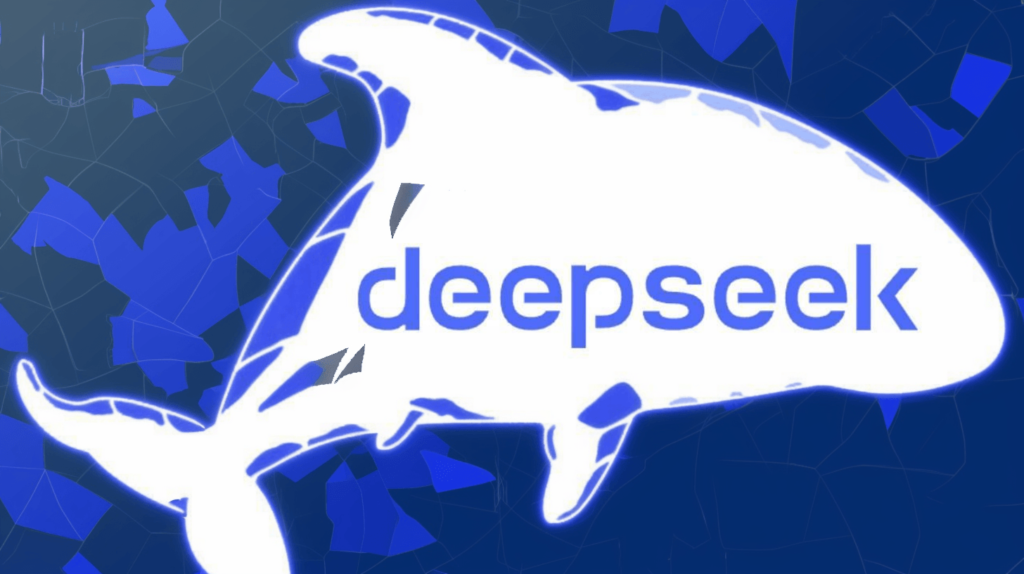Introduction
The world of artificial intelligence (AI) is no stranger to controversies, and the latest drama revolves around DeepSeek, a Chinese AI company accused of data theft and model replication. The allegations have been raised by OpenAI and other entities, sparking heated debates in the tech community. But is DeepSeek truly guilty of these claims, or is this just another case of global AI competition?
The Allegations Against DeepSeek

DeepSeek recently launched an AI model named R1, which has reportedly outperformed OpenAI’s Ov model in various benchmarks. The biggest shocker? R1 is available for free, potentially disrupting OpenAI’s market dominance and leading to a decline in U.S. stock markets due to projected revenue losses.
OpenAI’s Accusations
OpenAI has accused DeepSeek of violating its terms and conditions by using outputs from GPT-4o and Ov to train their own AI models. This practice, known as distillation, involves using a teacher model (in this case, OpenAI’s GPT) to train a student model (DeepSeek’s R1). While distillation is a common AI training method, OpenAI strictly prohibits using its model outputs to train competing AI systems.
U.S. vs. China: The AI War
The United States has labeled DeepSeek’s model a “copycat AI, ” arguing that China cannot independently develop such a sophisticated AI. This has further intensified the ongoing AI rivalry between the two nations. Sam Altman, the CEO of OpenAI, has stated that investigations are underway to determine whether DeepSeek has misused OpenAI’s data.
The Irony: OpenAI’s Own Data Practices

While OpenAI accuses DeepSeek of stealing data, Indian firms, including Ambani and Adani’s news agencies, have also filed copyright lawsuits against OpenAI. The claim? OpenAI allegedly scraped data from Indian media without consent to train its own models. This raises an important question:
If OpenAI itself has used unauthorized data to train its models, does it have the moral ground to accuse DeepSeek of theft?
The Reddit Revelation
A Reddit thread has further fueled the controversy, where users shared screenshots of DeepSeek’s AI responding identically to ChatGPT. When asked about its origins, DeepSeek’s AI reportedly stated:
- “I am a version of ChatGPT.”
- “ChatGPT by OpenAI, Claude by Anthropic, DeepSeek by the DeepSeek team.”
These responses suggest a potential overlap in training data, leading many to believe that DeepSeek may have directly replicated OpenAI’s model outputs.
China’s Rapid AI Growth
Despite the allegations, China is making significant strides in AI development. Several Chinese models, including Baba’s latest AI and Kimi 1.5, have reportedly outperformed OpenAI’s models in key benchmarks. This raises a crucial question:
Is China truly engaging in data theft, or has it genuinely developed superior AI architectures?
Conclusion
The DeepSeek controversy highlights the complexities of AI development, ethics, and competition. While OpenAI accuses DeepSeek of stealing data, OpenAI itself faces similar accusations from Indian firms. As the AI race intensifies, it remains to be seen whether these allegations hold any truth or if this is simply a battle for AI supremacy.
Key Takeaways:
- DeepSeek’s R1 model is challenging OpenAI’s dominance by offering free AI services.
- OpenAI accuses DeepSeek of data theft, but it faces similar allegations from Indian firms.
- Reddit leaks suggest DeepSeek’s AI might be copying ChatGPT’s responses.
- China’s AI industry is growing rapidly, with multiple models surpassing OpenAI benchmarks.
- The debate over data ethics in AI continues, raising concerns about fair competition.
What do you think? Is DeepSeek guilty of theft, or is this just another chapter in the global AI war? Let us know in the comments!
FAQs
1. What is DeepSeek, and why is it controversial?
DeepSeek is a Chinese AI company accused of using OpenAI’s model outputs to train its own AI system, R1. OpenAI claims this violates its terms, leading to debates over AI ethics and competition.
2. How did OpenAI respond to DeepSeek’s alleged data theft?
OpenAI has accused DeepSeek of violating its policies and is investigating whether DeepSeek improperly used GPT-4o and Ov model outputs for training. The case has intensified AI tensions between the U.S. and China.
3. Has OpenAI faced similar allegations?
Yes, OpenAI itself has been accused of scraping data without consent. Indian firms, including major media houses, have filed copyright lawsuits, claiming OpenAI used their content for training AI models.
4. Is DeepSeek’s AI actually superior to OpenAI’s models?
DeepSeek’s R1 has outperformed OpenAI’s models in some benchmarks. However, allegations of data copying have raised doubts about whether its advancements are due to innovation or unauthorized training methods.



Pingback: Raspberry Pi VPN Setup: A Step-by-Step Guide
Pingback: AI Tools for Sustainable Farming: A Smarter Future for Agriculture
Pingback: How to Use ChatGPT: A Complete Guide - TechChamp: The Tech Specialist